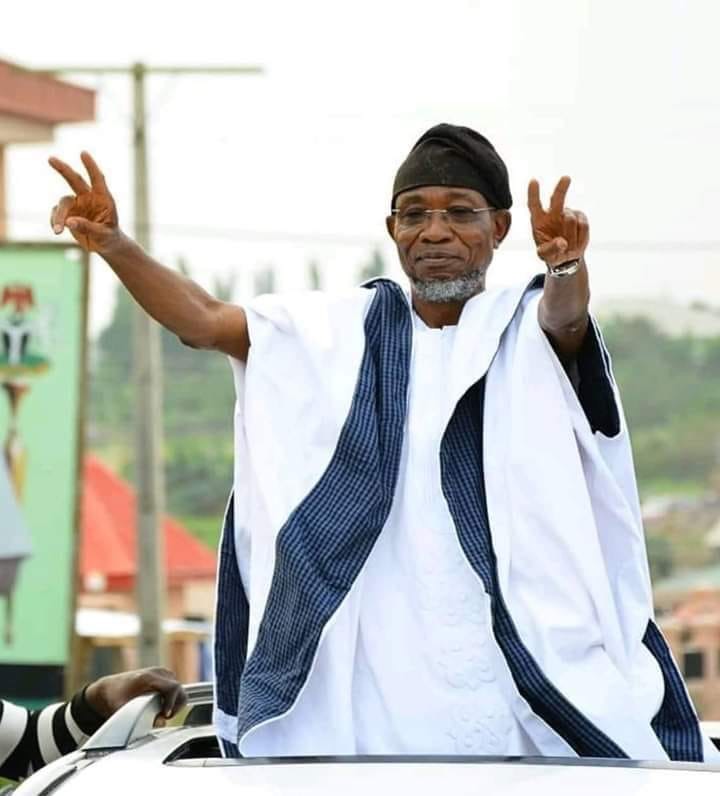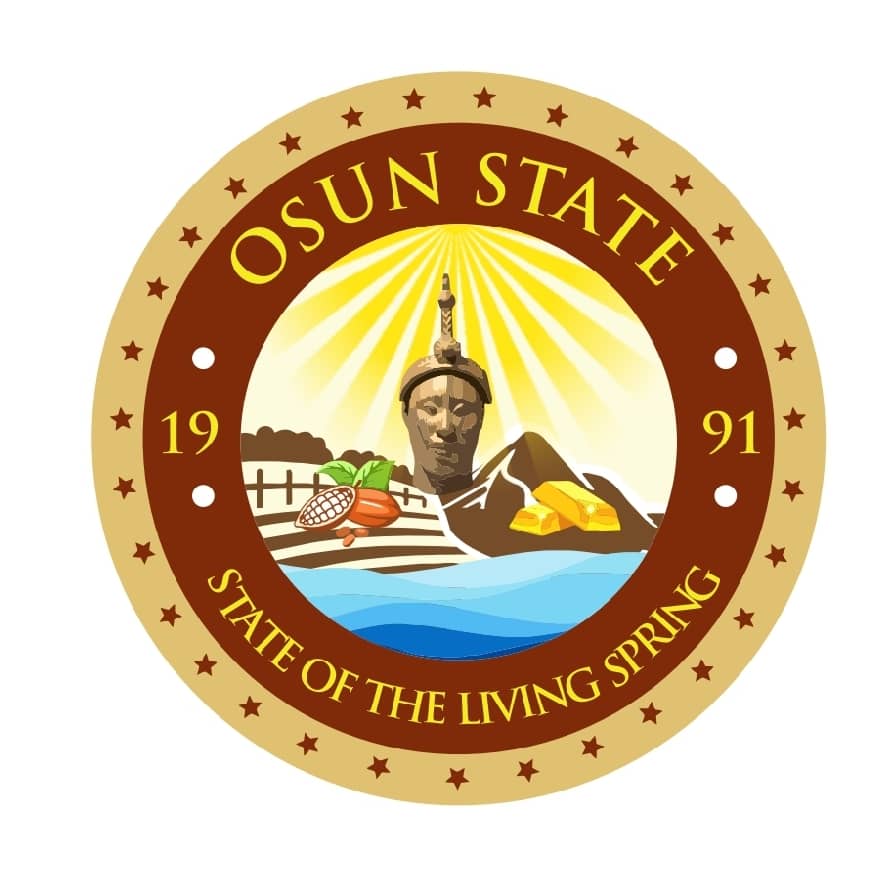By Owei Lakemfa
WITNESS to history. Animated discussions. Banters. Back slapping. Roaring laughter. Seeming riot, but orderly. Various groups, including the elderly and children. Then the crowds burst into songs and dances. They herald the arrival of the host. He is clad in white with a traditional white dog-eared cap.
He flashes his white teeth, raising a two-finger victory sign. Yes, he is the Governor of Osun State, or as his government prefers to call it, The State Of Osun. But the crowds, and protocols do not refer to him as His Excellency, he is simply Ogbeni, the Yoruba word for Mister.
As he walks in, it is announced that Ogbeni Rauf Aregbesola has arrived. No, he is not a unique person, he says he is simply at that material time the elected leader of the state. Traditional drumming and songs take over. He breaks into a dance with the fine dance steps of an accomplished traditional dancer. The crowd breaks into a frenzy, dancing as if it were a traditional festival. People do not rush to shake his hands or press against him.
They see him quite often, sometimes in the streets. So he is like a familiar neighbour. As he dances, the edges of the crowd seems to be bursting with wild dances, including by street toughies called the ‘State Boys’.
Then he raises his hands to signal a stop. The drummers go silent, the songs taper off. The Master of Ceremony tries to take control. Then one of the market women breaks into a popular song. It is about the market women being the soul of society. The Governor’s mother, Madam Saratu Aregbesola, known as ‘Iya Olobi” (Kolanut merchant) was a market woman. So the women have a pride of place in the state.
Aregbesola shakes his head as if resisting the temptation to stand up. But he has no choice, the crowds are getting back to their feet, the drums come back to life. He is again on his feet with traditional dance steps. The frenzy is on again.
Then after some songs, Aregbesola takes the microphone, faces the market women and sings: “She bi omo oloja niwa…”(Aren’t we the children of market people?) The rest of the crowd take over and the market women take centre stage as the most honoured group; they are the mothers who ensure natural and economic reproduction and production, take care of the family and make society run. While leading the vocals, Aregbesola seems transported to the past when his mother was his world.
Soon, the songs and dances come to an end. It is like the opening glee of the traditional Yoruba Alaarijo (Itinerant) drama groups who perform a musical (opening glee) before beginning their stage plays. Although it is a state function, but the sweating crowds are at ease. There are no security details pushing anybody around. It was like a family meeting or a communal reunion. In a sense, part of the attraction to state functions are these collective dances and songs which the famous Palm Wine Drinkers Club in Nigerian tertiary institutions would call “gyration”.
What the Aregbesola government did in the state was to incorporate the traditional system of Village Square meetings into governance, giving the people, a sense of collectivism, communality, consultation and mass participation in governance.
When the university system began in Nigeria in 1948, there was a sense of alienation between the ivory tower and the populace. There were strenuous efforts made to bridge the divide between ‘Gown and Town’. Part of the efforts were building cultural centres like the Mbari Mbayo in Oshogbo and the Ori Olokun in Ife.
However, the alienation between government and the people was far more pronounced. But what the Aregbesola government did was to put the people at the centre of governance and try to involve them by demystifying state events and turning them into festival-like ceremonies in which the governor and the governed, the high and the lowly interact. With the dances and songs over, the National Anthem which promises that: “The labour of our heroes past, Shall never be in vain” is played.
Then the ‘State of Osun Anthem’ in Yoruba is rendered. It is a patriotic and Pan-Africanist anthem which emphasises hard work. In part, it tells the populace: “There is work to be done for our land, for our fatherland…Our belief is that everyone is born equal. We need to work, to work and work to create wealth…Yee children of Oodua, rise and take your rightful place. You are the light of the entire Black Race.”
The crowd recites this like a pledge. Then, Christian, Islamic and African Traditional Religion prayers are offered. The Special Adviser to the Governor, Biyi Odunlade, then takes over, rendering enchanting panegyrics in Yoruba to which the crowds nod, snap fingers and concur as they soak in the poetic lyrics which sometimes take the form of chants.
Finally, the programme begins. When it is the turn of the governor to speak, he begins by breaking into songs, the dances resume, the drummers heighten the tempo and more bodies are soaked in sweat.
Finally, his speech, often laced with proverbs and wise sayings, is delivered. Quite often, the speech is interrupted by somebody from the audience breaking into a song and the crowds, as if on cue, join. On such occasions, the governor rocks from side to side, breaks into practised dance steps, then like a skilled conductor at the opera, weaves the songs to a stop and continues his address.
Sometimes, as the crowds quieten, he raises his own song and the dances resume. Speeches and programme over, the governor takes his leave, sent off with dances and songs. Various persons move to talk with him; he seems to have time for everyone. He rapidly gives appointments with aides taking note. Sometimes, it is a mother trying to cope with feeding her children. Such cases are quickly attended to.
On this particular day, November 26, 2018 as the programme reached a climax, the Ooni of Ife (The Cradle of Yoruba Civilisation) Oba Adeyeye Enitan Ogunwusi, Ojaja II, in fitting into the atmosphere, sprouts into instantaneous creativity. He teaches the crowd a song he crafted while sitting in the audience:
Aregbe wa so Osun (thrice)
Osi fara sinlu o.
Se lama ranti O (thrice)
Fun ise rere Ogbeni
“Aregbe came to Osun.
He served with commitment.
We shall always remember
The good works of Ogbeni”.
In Osun State, a cultured, warm and hardworking people, blended with a charismatic and committed leader. Under Aregbesola, it was indeed, ‘governance unusual’.
This Wednesday, May 25, 2022, Aregbesola who has moved from Osun State to central politics as Interior Minister, turns 65.











